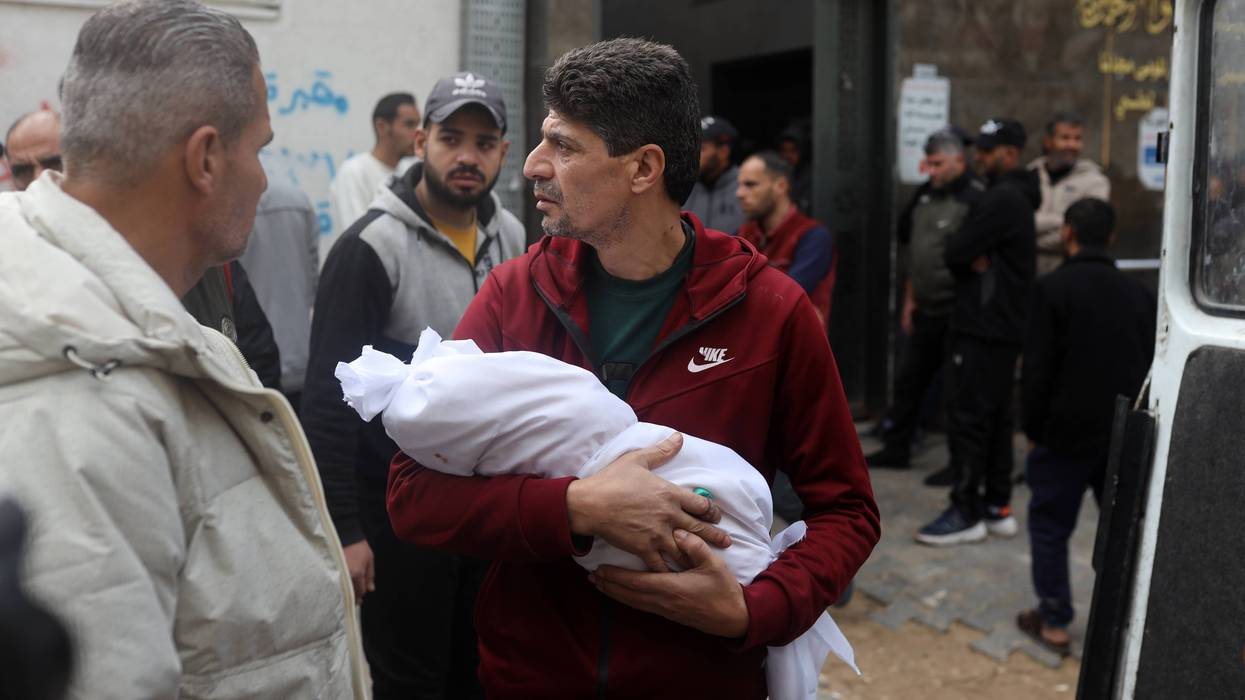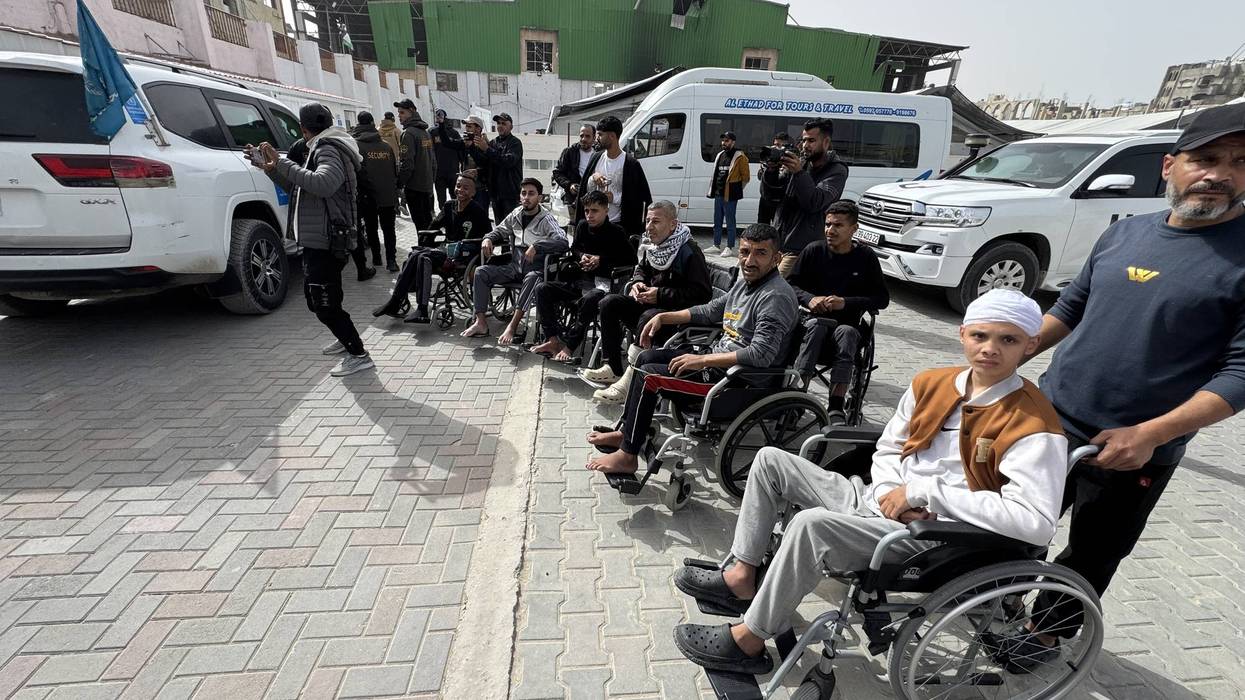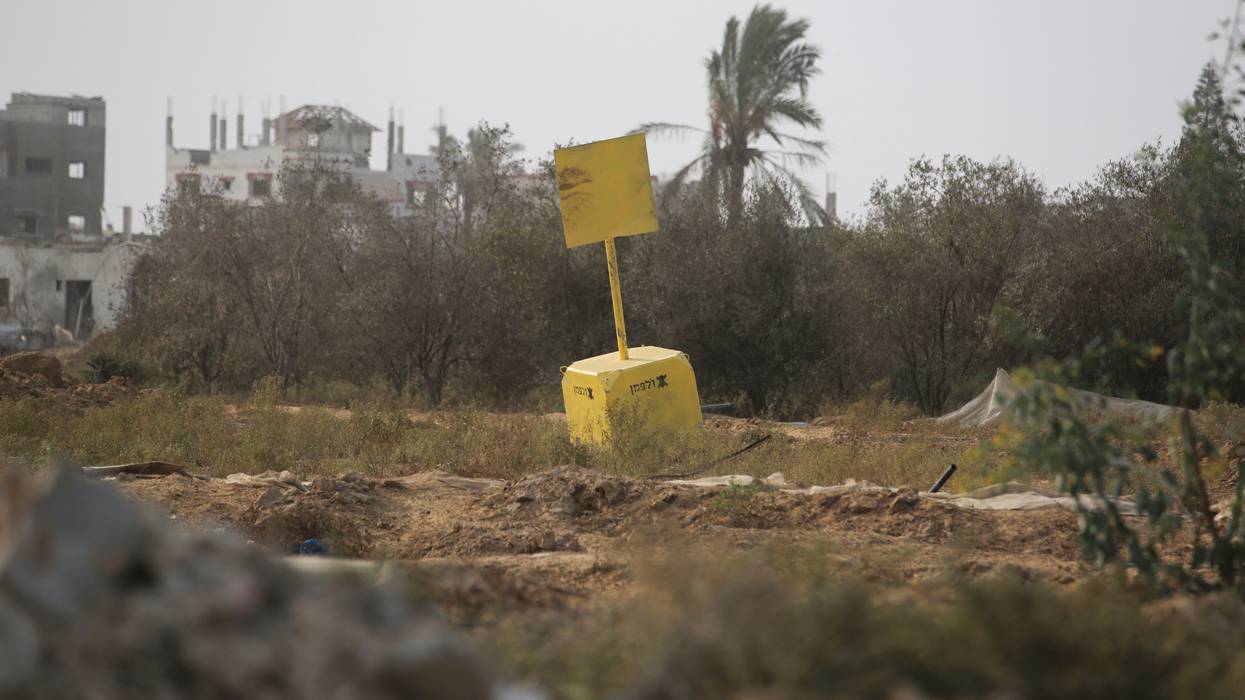'Where Is the Ceasefire?': Israel's Bombing of Gaza Kills 23, Mostly Women and Children
It comes as nearly 20,000 Palestinians are being denied the ability to leave Gaza for medical treatment, in what activist Muhammad Shehada called "a slow-motion massacre."
Israeli bombings across Gaza have killed at least 23 Palestinians since dawn on Wednesday, including at least two infants, according to hospital officials and other health authorities.
“Where is the ceasefire? Where are the mediators?” asked Dr. Mohamed Abu Salmiya, director of Gaza City’s Shifa Hospital, which received the bodies of 11 people—mostly from the same family—who were killed after Israeli soldiers fired upon a building in northern Gaza.
Israel said the attack was in retaliation after Hamas militants fired at an Israeli soldier, badly wounding him. The Associated Press reports that among the Palestinians killed were "two parents, their 10-day-old girl Wateen Khabbaz, her 5-month-old cousin, Mira Khabbaz, and the children’s grandmother."
Another attack on a tent in the southern city of Khan Younis killed three more people: Nasser Hospital, which received the bodies, said they included a 12-year-old boy. Another strike killed five more people, including a paramedic named Hussein Hassan Hussein al-Semieri, who was on duty at the time.
A total of 38 Palestinians were wounded in the series of attacks, according to the Gaza Health Ministry.
Since a "ceasefire" agreement went into effect on October 10 last year, the Gaza Government Media Office says Israel has committed at least 1,520 violations, killing at least 556 people—including 288 children, women, and elderly people—and wounding 1,500 others.
In comments to Al Jazeera, the Palestinian human rights advocate Muhammad Shehada said a ceasefire that is violated so consistently “is no ceasefire at all”.
“At most, [the deal] can be just described as some sort of mild diplomatic restraint,” Shehada said. “Whenever the world’s attention is elsewhere, Israel escalates dramatically.”
Since its genocidal war in Gaza began in October 2023, nearly 72,000 Palestinians have been killed and 171,000 injured, according to the Gaza Health Ministry, whose figures the Israel Defense Forces (IDF) recently conceded are accurate after more than two years of denial. Independent estimates suggest the true death toll is much higher.
Wednesday's onslaught came as Israel began to slowly open the Rafah crossing—the main point of entry and exit from the strip—for those in severe need of medical attention to leave.
Gaza's hospitals have been rendered largely inoperable by two years of relentless bombing and a lengthy blockade on medical supplies entering the strip, which has left more than half the population without medical treatment.
The World Health Organization said last week that 18,500 Palestinians are in need of medical treatment abroad, including hundreds in need of immediate treatment.
According to Egyptian officials, 50 patients were expected to enter through the crossing each day. However, on Monday, just five Palestinians were allowed to leave Gaza for treatment, followed by 16 on Tuesday, according to Al Jazeera reporters on the ground.
Around 4,000 of those awaiting treatment are children. According to health officials, one of them, 7-year-old Anwar al-Ashi, died of kidney failure on Wednesday while on a waitlist.
Meanwhile, those attempting to cross have been met with treatment described as "humiliating" by reporters who witnessed it. Israeli troops have subjected patients to strip searches and interrogations—some were blindfolded and had their hands tied.
"The Rafah crossing continues to be a cruel and severely restricted 'passage' of pain and humiliation," said the Palestinian politician and activist Hana Ashrawi. "This continues to be a multifaceted war of aggression, based on the deliberate manipulation of the pain of a captive people."
Salmiya said that at the rate Israel is allowing them to leave, "it will take about five years on average for all patients to be discharged." He referred to Israel's actions as "crisis management, not a solution to the crisis."
On Tuesday, United Nations Secretary-General António Guterres called for "the facilitation of rapid and unimpeded passage of humanitarian relief at scale—including through the Rafah crossing."
He added that Israel's recent suspension of dozens of aid organizations—including Doctors Without Borders, Oxfam, and Save the Children—defies humanitarian principles, undermines fragile progress, and worsens the suffering of civilians."
Shehada, who said he and his family were eagerly awaiting the end of travel restrictions, told Al Jazeera that "Israel hollowed [it] out of any substance or meaning." Instead, he said, "it’s basically a slow-motion massacre."


